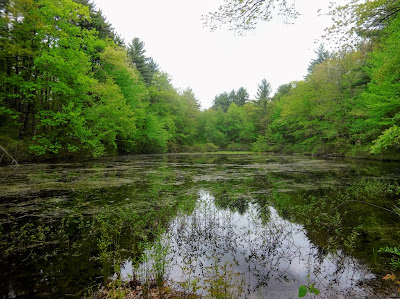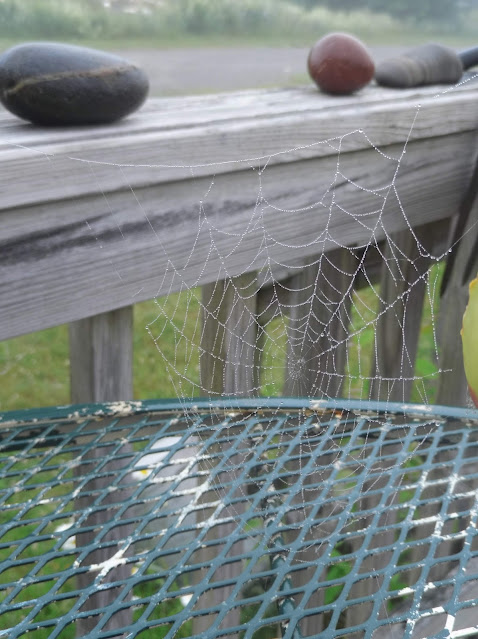A Certain Cartography Leads Me
A Certain Cartography Leads Me
These peninsulas take the water between thumb and finger
like women feeling for the smoothness of yarn-goods.
Elizabeth Bishop
The Map
Once or twice maybe though certainly never more than half
a dozen times I’ve been out of sight of dry
land. I floated out slow and when the motor was cut
we drifted near the buoy we’d hook to pull up
and wrap and wrap it round the line hauler and watch
while the water was squeezed through to drop, like the water is
while the water was squeezed through to drop, like the water is
often dropped, back down onto itself, first maybe
striking the gunwales, the scratched fiberglass. One day
it was aqua so far from shore I’m not sure how I missed
the trail we made in foam and oil and while I’ve never been
any good at mixing colors on a palate to get the effect Edgar Degas
any good at mixing colors on a palate to get the effect Edgar Degas
may have gotten, my preference these days,
because he seems to tell my story honestly, is Andrew
Wyeth. It’s in the color of his boats and bait sheds and his brick
Wyeth. It’s in the color of his boats and bait sheds and his brick
lighthouses. It’s his distensible attention to the texture
of fog, and sounding into it to risk the cliché I feel
that exquisite chill at being deep
in the middle of it without boundary without land-
fall, without that need to say inside (because knowing
doesn’t need word, word being that kind of explanation,
of needing convincing)(and it goes without saying that
with all these letters coming together like they do, you must
know I’m not entirely convinced) my head: I’m in
with all these letters coming together like they do, you must
know I’m not entirely convinced) my head: I’m in
control. I’m in control of all of this. If I wanted I could
step off this boat and walk back
to shore, my binnacle glass unmolested, my eye
peeking into watch the compass clutch
her cantilevers, the precision of the gift only John
Harrison delivered up to the horological society
when he discovered longitude could be, must be
measured if men were ever going to make it close
to home. And while I go out mostly in my own head now,
and the distance from my left ear to my right
is only about seven inches, if that, I ask, should I want
to plot it out from the cove I set out into
maybe it would stretch, the tape I use is the same
one my mother used, measuring me once
from heal to crotch naked and ashamed while she wrote
and complained, the tracing paper fluttering in the open
window, I might make it to Digby, Nova Scotia (depending on
window, I might make it to Digby, Nova Scotia (depending on
the map) though truth be told I’d like to get to Great
Village, where Elizabeth Bishop came as a little girl,
before she was stolen back to Massachusetts. I remember
that was after they’d taken her mother away, somehow
in her grief a scream ripped clean through the middle
(who could tell, it was, after all, like thought, always
on the inside) the rupture of her undoing
a knife plunge in the dividing halfs of the brain, staying
there forever, so all her daughter’s thoughts had to
navigate around it, the buoy, chained to the bottom
of the ocean floor, tipping-ringing-groaning-all the wind
all the snow all the coming and going split
the way only water can split, cupped for a moment
but entirely ungraspable, even (and only in the coldest
months can this be done with salt water) the sea
and my fragile as silica prow, motoring ahead
these few, twice maybe, half a dozen times at best,
away from, eventually, unseeable land.





Comments
Post a Comment